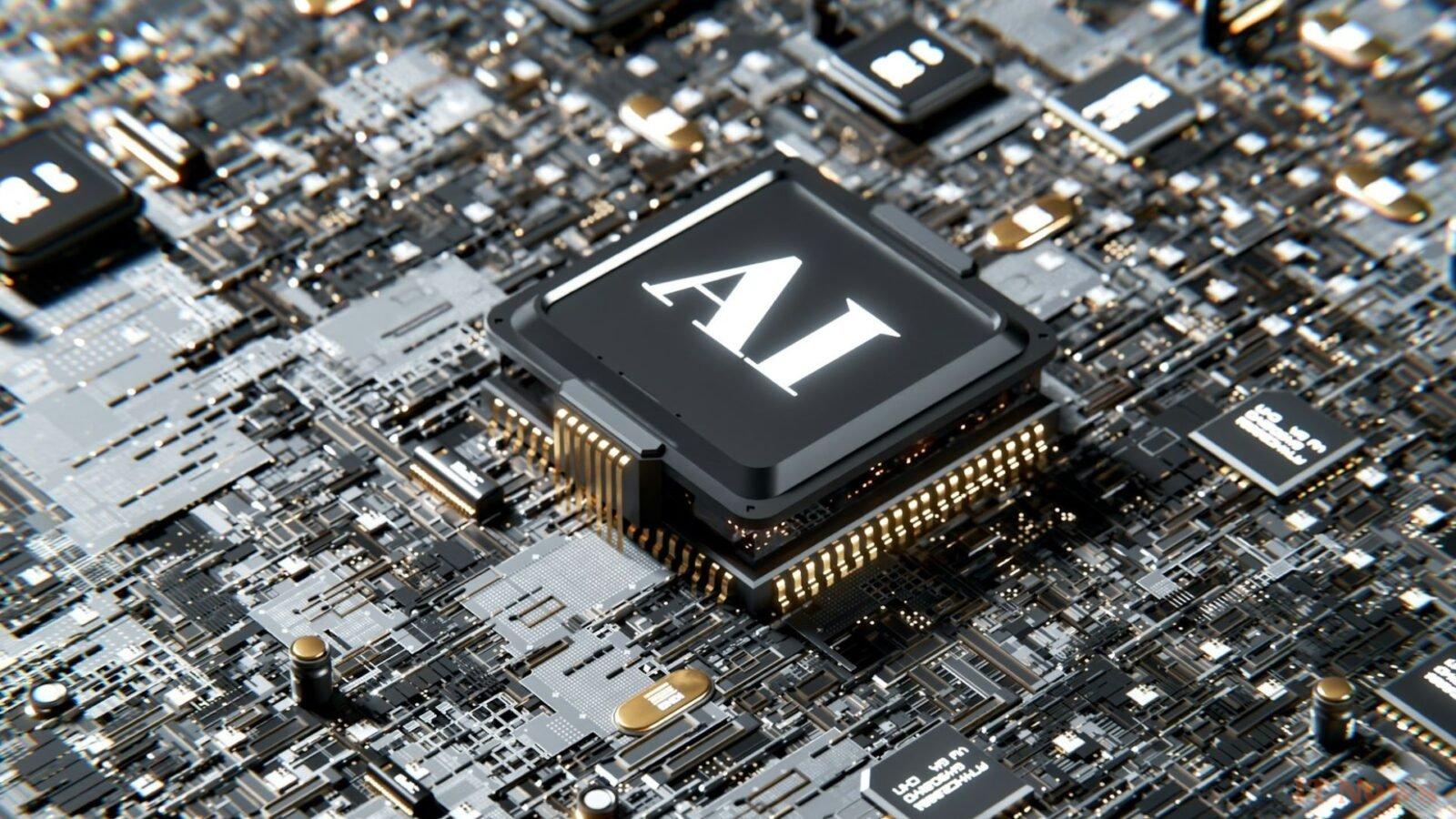How is China managing to source semiconductors for artificial intelligence (AI) amid increasingly stringent US restrictions? Two Chinese tech giants, Tencent and Baidu, detailed their different strategies in earnings conference calls, as reported by US media outlet CNBC. Both explained how they had managed to circumvent US regulations that limit the sale of electronic chips to Chinese companies, known as "export restrictions."
Since October 2022, the United States has been using its export rules on semiconductors to try to hinder China's technological development.
And Donald Trump's arrival in the White House hasn't changed the situation. At the end of March, Washington first extended its blacklist to dozens of Chinese companies.
And last April, the new US administration banned two of its American champions, Nvidia and AMD, from selling semiconductors for artificial intelligence to China. And this umpteenth tightening would harm American companies more than Chinese companies, Nvidia CEO Jensen Huang lamented in return on May 21.
As a result, Chinese companies have organized themselves to procure these electronic chips, components essential to the manufacture of our cars, smartphones, but also AI tools like ChatGPT, Gemini, Le Chat, or DeepSeek. They have also come up with alternatives, like Tencent, the world's leading Chinese video game publisher and owner of the WeChat meta-application.
For Tencent: Doing More with Less
For Martin Lau, head of the Chinese new technology giant, the group first built up a "fairly large stockpile" of chips, purchased before the latest restrictions. And this reserve would be put to particularly good use. According to the executive, the company has successfully trained language models with fewer chips.
This is enough to challenge "the belief of American companies that a large number of GPUs (Graphics Processing Units) must be used to develop more advanced AI," our colleagues write. The company has "enough high-end chips to continue training models" of more advanced language, the executive assured.
The Chinese giant, which was unable to purchase as many graphics processors as planned due to American restrictions, is said to have worked on "software optimization" to improve the efficiency of each semiconductor, the group claimed. Tencent is also reportedly using custom-designed semiconductors currently available in China, according to the Chinese company.
Baidu: Making the Most of the GPUs It Has in Stock
Another local tech giant, Baidu, is also putting forward various measures to overcome the difficulty or even impossibility of sourcing the most advanced chips, notably those designed by the American company Nvidia. The Chinese internet giant, which has developed a competitor to ChatGPT, Ernie, explains that it has relied on its cloud infrastructure, its already developed AI models, and its applications.
Baidu has thus highlighted its ability to reduce the operating costs of its language models. Baidu management also cites efficiency gains that allow it to make the most of its GPUs.
"As foundation models increase computing power requirements, the ability to build and manage large-scale GPU clusters and utilize GPUs efficiently has become a key competitive advantage," Dou Shen, head of the company's Cloud AI business, told analysts during the conference.
The latter also cites the progress made by Chinese companies, which, having worked on semiconductors for years, have managed to mitigate the impact of US restrictions on electronic chips. "Domestic-developed semiconductors, along with an increasingly efficient local software stack, will together form a solid foundation for long-term innovation in China's AI ecosystem," he assured.
China just behind the United States
These statements come in a very specific context – the two leaders were addressing their investors. Their objective was therefore to reassure them about the supply of chips for AI – components that no tech company can do without today.
But they fit well with the strategy initiated by Beijing years ago: that of becoming self-sufficient in semiconductors. And while Chinese semiconductor manufacturers are still a few generations behind the chips of current leaders, "China would (now) be just behind the United States. We are very close," lamented the CEO of Nvidia earlier this month. The head of the American leader estimated that the restrictions introduced since October 2022 have caused it to lose half of its market share in China, to the benefit of local companies.
Beijing has indeed been investing huge sums for years to help its champions develop a supply chain for electronic chips in the country. The local government had chosen to massively and unlimitedly subsidize several companies, including Huawei: blank checks intended to "lift the industry out of poverty," a government official said at the time.
For Gaurav Gupta, a semiconductor analyst at Gartner, who was interviewed by CNBC, the bet is about to be won. "China has been surprisingly extremely (…) ambitious in (its) objective (to develop its own semiconductor ecosystem, editor's note) and it must be admitted that it has achieved decent success (…). This allows it to obtain AI chips, which may not be able to compete with those of the American leaders, but which continue to progress."



0 Comments